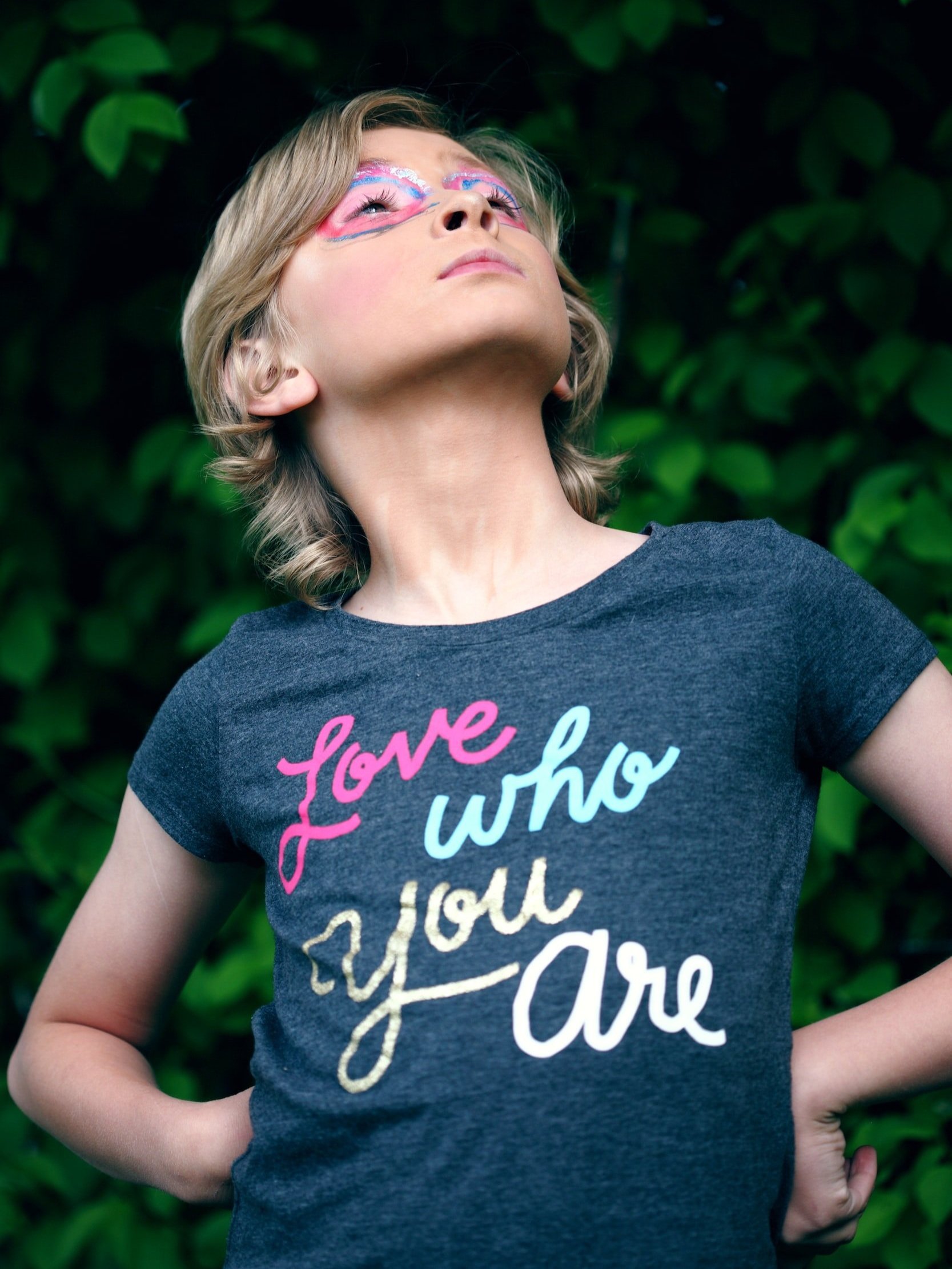How to Speak to My Child About Body Image
Body image is a tricky thing for people at any age. Most of us struggle with our own body image, so we may feel unsure of how to navigate comments or questions from our kids as their own bodies grow.
For the past year our now 4-year-old daughter has been talking about "looks" and "pretty things." She completed her first year of preschool last June (thanks, pandemic!), and it has been compelling to observe how she is being socialized regarding gender and appearance, compared to our son when he was her age.
Her comments have led to a lot of reflection for me on my own body image. I've been thinking about how I talk about my body and how I feel about it today. Like many moms, I have retained weight after each pregnancy. Now, almost seven months postpartum after baby #3, I'm almost as heavy as I was at 7 months pregnant with #2.
Watching my daughter observe and absorb messages in our culture about appearance has led to a lot of unpacking of my own socialization. I’ve been reflecting back on the various stages of my childhood and when I began to take notice of my body, making observations or judgments about it. While our perspectives are influenced by a variety of factors, the role modeling our parents unconsciously infused in our growing minds is a massive factor.
As children, we instinctively see our parents as beautiful, handsome, or cool until we become aware that they may feel otherwise. Our earliest thoughts are kind thoughts until the world around us starts to mirror alternate options, and we begin to form a new lens.
Our son frequently calls me "my most beautiful mommy." He says it often and in the most genuine way. He tells me he loves to cuddle with me because I am "squishy." I used to take it for granted and just brush it off, "He's my kid, of course, he loves me." I used to internally recoil at the word squishy, with my own conditioned meaning that I gave to the word, but now, I am leaning into it.
My body has carried, birthed, and nursed three kids. It won't ever be the same, and why would it? I am committed to working to see myself the way my kids do - as strong, funny, loving, and beautiful.
3 Tips For Helping Your Little One Cultivate a Kind Body Image
1. Modeling: Modeling is far more important than your words. If you tell kids one thing about themselves and then do something else regarding yourself, they are more likely to observe and believe what they see you do towards yourself. Start by reflecting on how you talk about what you eat? How do you talk about your body when you get dressed or when you try on clothes? How do you talk about exercise? Is it from a place of joy and play or a place of need and disdain? What does a healthy body look like and mean to you?
2. Unpacking: As with so many things when it comes to the colorful journey of parenting, we have to unpack our own baggage first. How were you raised regarding body image? What messages were you given by your parents or your peers? What lessons stuck with you through your teens and early adulthood about your body? Are those the same messages you want for your children? Or do you want something different for them and you?
3. Language: Be mindful of your language and the comments you make about your own body, their body, or any body for that matter. Do you make comments about the physical appearance of others when out in public or about someone on TV? What kind of language do you use? Do you talk solely about looks, or do you talk about what a body can do? Are you pointing out if they are strong, fast, agile, or brave? Or merely basing your opinions on the external shell? Our bodies are so much more than their looks!
Our kids are the most wonderful reminder of how we can see ourselves if we are willing to choose compassion over self-criticism. They are a mirror for us, and it’s important to remember that we are serving as a mirror for them as well. This is why leading by example and teaching them through your own self-loving attitude is so powerful.


